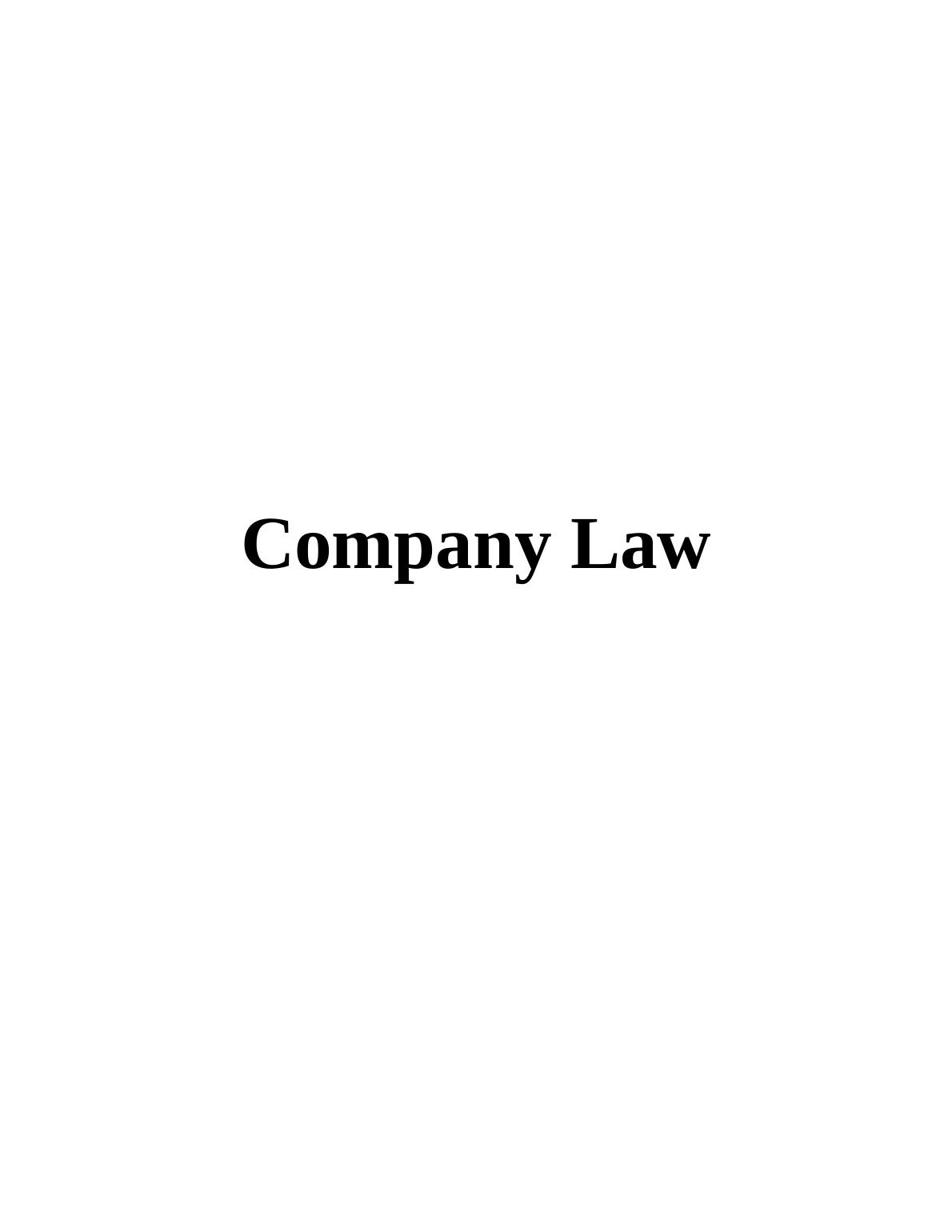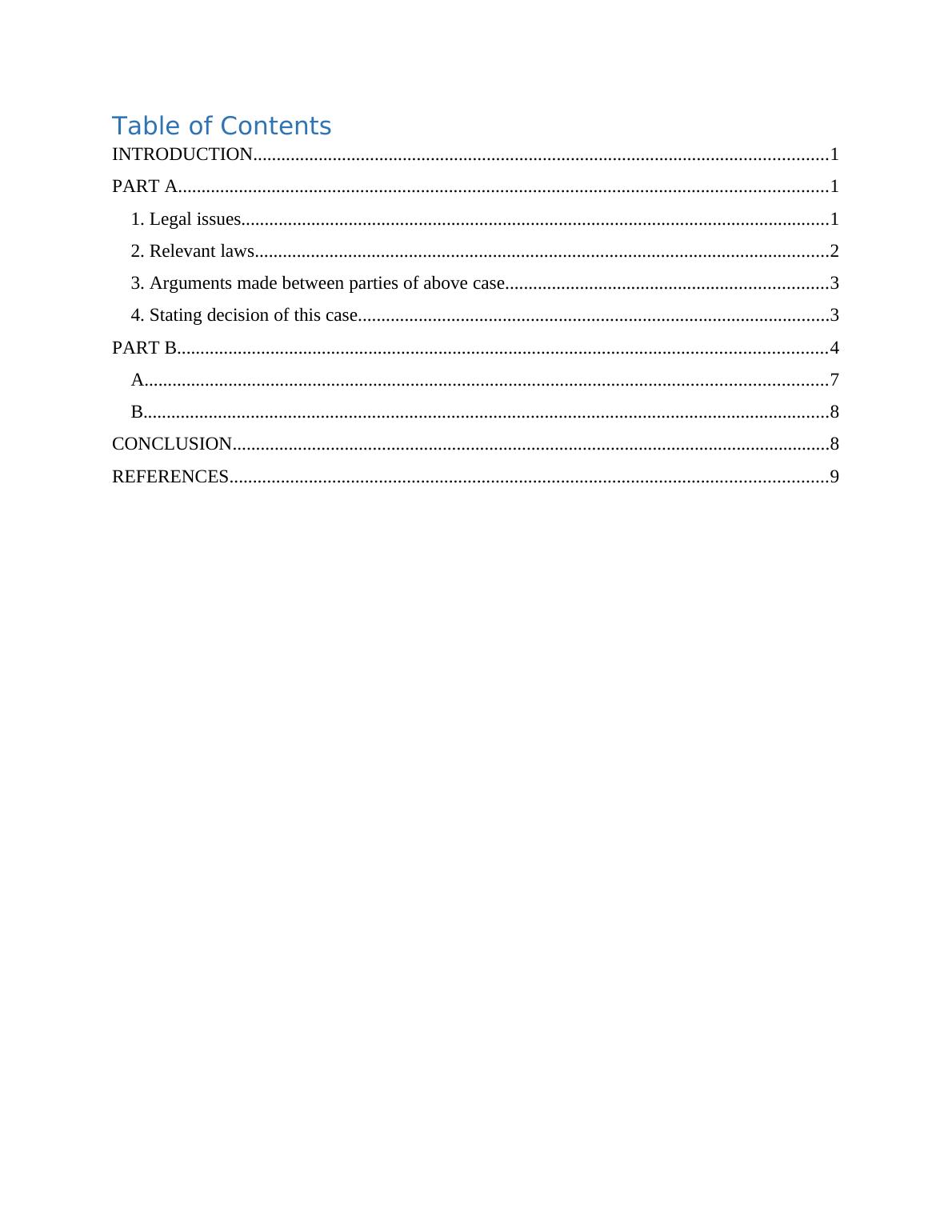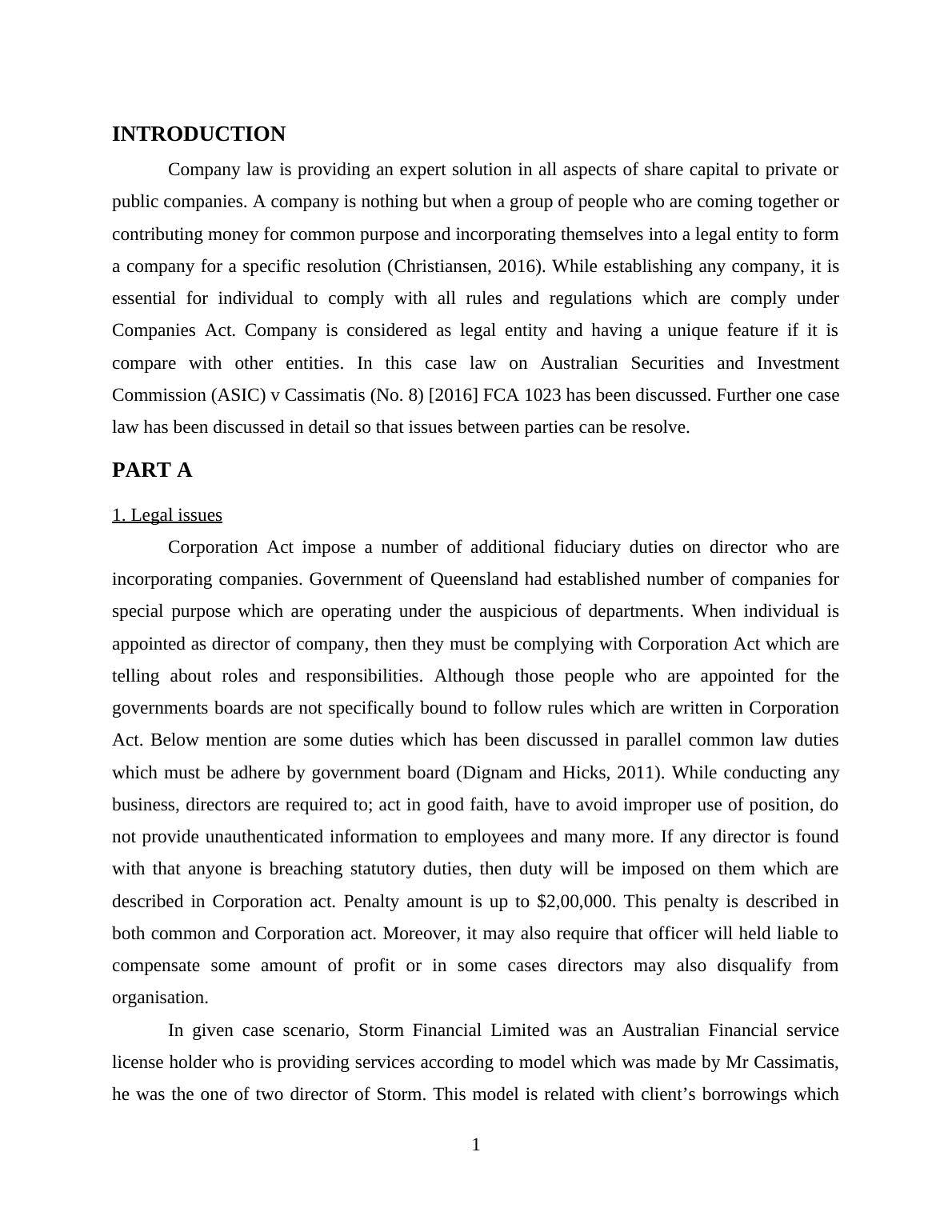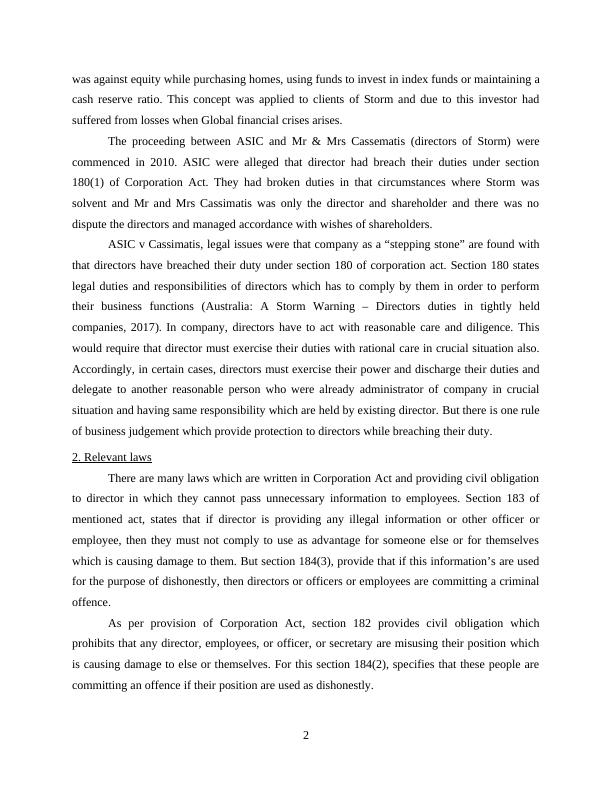Company Law | Public and Private Companies
Added on 2020-06-06
12 Pages4048 Words44 Views
Company Law

Table of ContentsINTRODUCTION...........................................................................................................................1PART A...........................................................................................................................................11. Legal issues..............................................................................................................................12. Relevant laws...........................................................................................................................23. Arguments made between parties of above case.....................................................................34. Stating decision of this case.....................................................................................................3PART B...........................................................................................................................................4A..................................................................................................................................................7B...................................................................................................................................................8CONCLUSION................................................................................................................................8REFERENCES................................................................................................................................9

INTRODUCTIONCompany law is providing an expert solution in all aspects of share capital to private orpublic companies. A company is nothing but when a group of people who are coming together orcontributing money for common purpose and incorporating themselves into a legal entity to forma company for a specific resolution (Christiansen, 2016). While establishing any company, it isessential for individual to comply with all rules and regulations which are comply underCompanies Act. Company is considered as legal entity and having a unique feature if it iscompare with other entities. In this case law on Australian Securities and InvestmentCommission (ASIC) v Cassimatis (No. 8) [2016] FCA 1023 has been discussed. Further one caselaw has been discussed in detail so that issues between parties can be resolve. PART A1. Legal issuesCorporation Act impose a number of additional fiduciary duties on director who areincorporating companies. Government of Queensland had established number of companies forspecial purpose which are operating under the auspicious of departments. When individual isappointed as director of company, then they must be complying with Corporation Act which aretelling about roles and responsibilities. Although those people who are appointed for thegovernments boards are not specifically bound to follow rules which are written in CorporationAct. Below mention are some duties which has been discussed in parallel common law dutieswhich must be adhere by government board (Dignam and Hicks, 2011). While conducting anybusiness, directors are required to; act in good faith, have to avoid improper use of position, donot provide unauthenticated information to employees and many more. If any director is foundwith that anyone is breaching statutory duties, then duty will be imposed on them which aredescribed in Corporation act. Penalty amount is up to $2,00,000. This penalty is described inboth common and Corporation act. Moreover, it may also require that officer will held liable tocompensate some amount of profit or in some cases directors may also disqualify fromorganisation. In given case scenario, Storm Financial Limited was an Australian Financial servicelicense holder who is providing services according to model which was made by Mr Cassimatis,he was the one of two director of Storm. This model is related with client’s borrowings which1

was against equity while purchasing homes, using funds to invest in index funds or maintaining acash reserve ratio. This concept was applied to clients of Storm and due to this investor hadsuffered from losses when Global financial crises arises.The proceeding between ASIC and Mr & Mrs Cassematis (directors of Storm) werecommenced in 2010. ASIC were alleged that director had breach their duties under section180(1) of Corporation Act. They had broken duties in that circumstances where Storm wassolvent and Mr and Mrs Cassimatis was only the director and shareholder and there was nodispute the directors and managed accordance with wishes of shareholders. ASIC v Cassimatis, legal issues were that company as a “stepping stone” are found withthat directors have breached their duty under section 180 of corporation act. Section 180 stateslegal duties and responsibilities of directors which has to comply by them in order to performtheir business functions (Australia: A Storm Warning – Directors duties in tightly heldcompanies, 2017). In company, directors have to act with reasonable care and diligence. Thiswould require that director must exercise their duties with rational care in crucial situation also.Accordingly, in certain cases, directors must exercise their power and discharge their duties anddelegate to another reasonable person who were already administrator of company in crucialsituation and having same responsibility which are held by existing director. But there is one ruleof business judgement which provide protection to directors while breaching their duty. 2. Relevant lawsThere are many laws which are written in Corporation Act and providing civil obligationto director in which they cannot pass unnecessary information to employees. Section 183 ofmentioned act, states that if director is providing any illegal information or other officer oremployee, then they must not comply to use as advantage for someone else or for themselveswhich is causing damage to them. But section 184(3), provide that if this information’s are usedfor the purpose of dishonestly, then directors or officers or employees are committing a criminaloffence. As per provision of Corporation Act, section 182 provides civil obligation whichprohibits that any director, employees, or officer, or secretary are misusing their position whichis causing damage to else or themselves. For this section 184(2), specifies that these people arecommitting an offence if their position are used as dishonestly. 2

End of preview
Want to access all the pages? Upload your documents or become a member.
Related Documents
The laws of corporations Assignmentlg...
|7
|1372
|118
LAWS19032 Company & Association Law - CQUlg...
|13
|3441
|66
Company & Association Law, Assignment - LAWS19032lg...
|18
|3707
|92
Corporation Actlg...
|8
|736
|72
Breach of Directors Duties under Corporation Act 2001 - ASIC v Cassimatis (No. 8) [2016] FCA 1023lg...
|12
|657
|91
LAWS4005 - Company Law - Case Studylg...
|18
|3855
|36